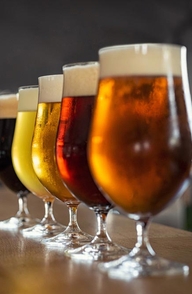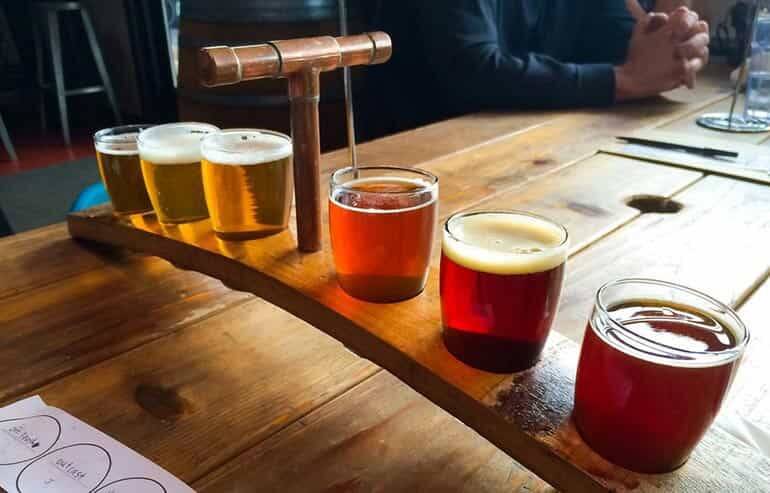Start 14-Day Trial Subscription
*No credit card required

10 Most Popular Slang Words for Beer
Have you ever referred to a beer as a brewski, suds or wallop? Check out these name variations of your favorite adult beverage.
A particular group of people can decide to make up some words for use in speech. Teenagers and co-workers are the most active in the formulation of such words. These words then create a slang language that has a particular meaning to the users.
Some of these words are from other existing words from common languages. These words are meant to exclude other people from a discussion. However, they are informal and cannot work in writing situations.
The slang language can also create a sense of belonging. These words also tend to be short-lived. However, some do make it into primary English languages.
The Pub and Club Gang
According to statistics, more than 86% of adults have drunk beer at a certain point in life. Most drinking happens in groups when with friends or relatives. Beer has been able to bring people together and initiate relationships for centuries.
Beer lovers always come together occasionally to have a sip. These relationships grow close over time, and they recognize themselves as a group. Famous slang words for beer come from such relationships and interactions.
Friends drinking beer have come up with slang words for drinks and some have gone viral. With the efforts to conceal some meanings, these words have grown and evolved with time. Every group of beer lovers has a slang word, and it is evident all over the world.
Prominent Slang Terms for Beer
There are many words that can refer to beer. People come up with words in their everyday life when inspired by the urge to quench their thirst.
Several famous slang words exist in our society. As a result, here is a list of beer slang terms that are common:
Brewski
The slang name refers to cheap watery beer. The term brewski originated in the North American region.
Brewski started as a college word from Russian imitation names. College boys used to play with russki, buttinski, and other words ending with -ski.
The names thus resulted in a slang word to represent beer. The culture then accepted the name, and some beer lovers still use it.
The first printing of the word was in the Oxford dictionary citation in the year 1977. It was in a sentence that was for a Saturday Live skit.
Suds
The word is popular in the U.S. It refers to beer that has carbonated bubbles and a hoppy flavor.
Since the year 1904, the word has had different meanings before referring to a beer. It first meant filth. Then later, the name adopted the meaning of the foamy lather mass in soapy water.
The word thus became a foam or froth of any kind. As a result, beer lovers adopted the name since a lager was foamy and had effervescence.
Wallop
It commonly refers to beer among many people. The term has been in use as early as the 1870s, originating from an English soft drink maker. The word wallop came from the word codswallop. Codswallop was a bottling technique used for carbonated drinks.
In the 1930s, the word became popular and referred to beers. The word's connections to beer are not yet known, but it means noisy water bubbles. The bubbling of water, in comparison to the beers foaming and bubbling, can be the origin.
Tinnie and Amber Nectar
Both these slang words are in use in Australia to mean a beer. Tinnie was first used in the 1970s and referred to as canned beer. Amber nectar originated from the U.S. in the 19th century.
Amber nectar can refer to lager. At first, any colored drink was amber nectar. Marketing campaigns of the Foster Lager Company then popularized the name. The word then became slang for a lager.
Fosters Lager essentially did this marketing in Australia, where the word is popular. The marketing campaign took place in the 1980s. They also introduced Amber Fluid and Amber Liquid.
Slops
The word slop can mean a variety of things. In the USA and Australia, it means cheap beer or alcohol. It also implies semi-liquid pig food or nonsense.
Gatter
This British slang name origin is not yet known. It was first published in the year 1818 and has referred to beer ever since.
Swipes
Swipes is a word for weak beer. The term symbolized one gulp of beer and has been used to mean beer ever since. Some prominent people like Charles Dickens have also used the word in their writings.
Shenkbeer
The slang word originated from German Shenkbier. It meant draft beer, as it was very crucial to drink it immediately before it lost taste. The word was popular in the U.S. during the 19th-century, referring to beer.
Pongelo
Pongelo referred to a mixture of pale ale and other beers. The word is slowly fading as it has been in use since the early 1860s. The term came from the word Pong and an ending to -elo to make it cool. The word owes its origin to the Indian army slang of those times in the English camps.
Penny-whip
The slang word refers to weak beers. Its everyday use is in Scotland, Ireland and England but slowly fading away. The word, from a Scottish poem, is a common term for beer lovers in Europe.
Most of these words may pass on with time, but the memories they bring will surely last. These words bring people together and foster a feeling of togetherness. The sentiment is of the utmost importance when making merry with all beers.



